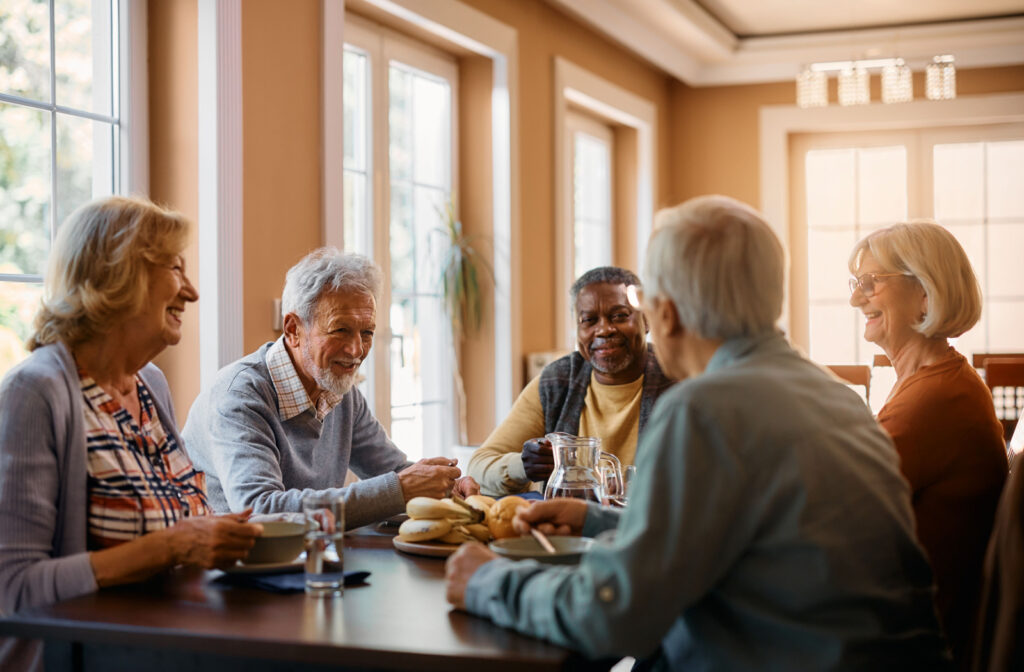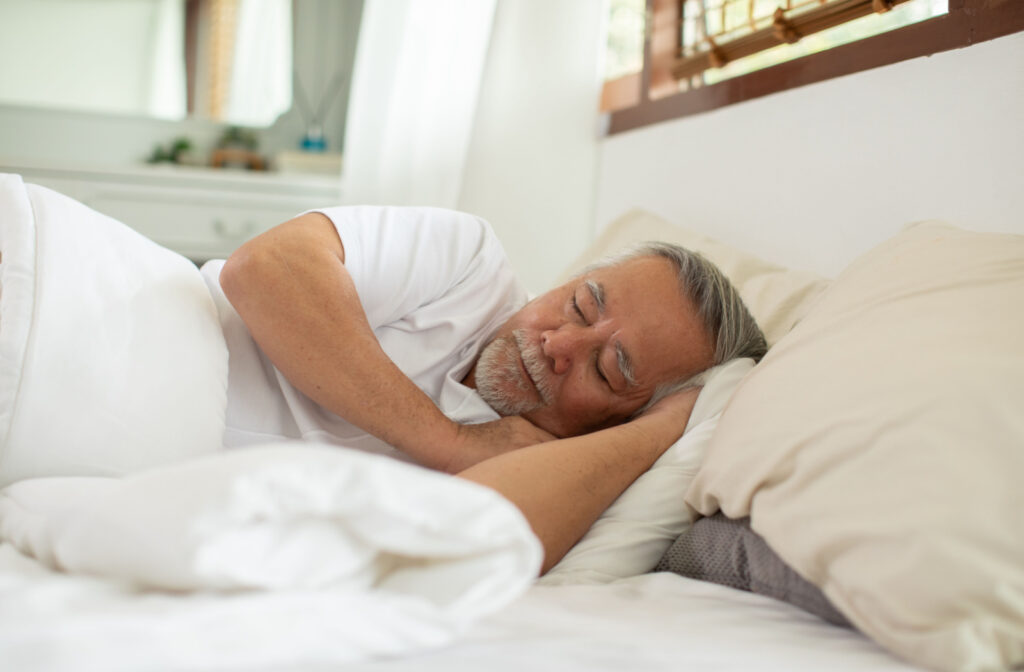There are many reasons why some seniors may sleep more than younger adults. Poor sleep quality, mental health struggles, medications, underlying conditions, and boredom can all lead to daytime sleepiness and excessive napping.
As we age, our sleeping patterns change, and we need to understand the causes and consequences of this phenomenon. It’s also important to note that just because an older adult is sleeping more doesn’t mean they are getting quality sleep.
Sleep quality plays a crucial role in taking care of our health, especially as we grow older. When choosing a senior living community for your loved one, it’s essential to consider the presence of knowledgeable caregivers. Their support can greatly impact your loved one’s quality of life, particularly if they face sleep-related challenges later on.
Why Do Seniors Sleep So Much?
There’s no one answer as to why some seniors seem to sleep more than younger individuals. The answer could range from something simple as changing a sleep schedule to an underlying medical condition causing increased daytime sleepiness.
Poor Sleep Quality
Even though a senior may spend an appropriate number of hours in bed, they may wake up feeling like they’ve barely slept at all. This can lead to feeling tired and sleepy throughout the day. And the natural response to feeling sleepy is to take a nap or go to bed early.
In this way, poor sleep quality can lead to spending more time in bed. But remember, it’s not just about the quantity of sleep, but the quality, too. If your loved one is experiencing signs of poor sleep quality, it may be worthwhile to talk to a healthcare provider to figure out how they can improve their sleep.
Depression & Anxiety
Mental health problems such as depression and anxiety may also be a factor in why seniors tend to sleep more. Such ailments can cause fatigue and a lack of motivation to undertake daily tasks, ultimately encouraging sleeping more, but not necessarily better.
These mental health conditions can cause other problems that contribute to disturbed sleep, including difficulty falling and staying asleep, early morning awakening, and restless legs syndrome, among others. Sleep deprivation caused by mental health conditions can lead to tiredness, daytime napping, and excessive sleeping.
Medications
Certain medications can cause sleep disturbances, which can lead to daytime sleepiness and extra naps during the day. It seems that the medications used to treat various medical problems that are common in older adults can lead to disruptions in sleep. For instance, bronchodilators, β-blockers, and corticosteroids have been identified as potentially affecting sleep.
Some types of sleep medications, when used a lot, can cause you to lose sleep. Long-term use of benzodiazepines, a type of medication often used for insomnia and anxiety, has been linked to an increased risk of dementia in older people. The same studies that link sleep medication to an increased risk of dementia also show that several types of dementia, such as Alzheimer’s, Parkinson’s disease, multi-infarct dementia, or Lewy Body dementia, can all affect parts of the brain that help regulate sleep.
Medical Conditions
Seniors may also sleep more due to underlying health conditions such as arthritis, chronic pain, diabetes, and dementia, among others. These ailments can lead to discomfort and fatigue, making sleep a desirable escape. But some conditions, like those that include chronic pain, can also make sleeping difficult. The lack of restful sleep can lead to daytime sleepiness and napping.
Also, some prescription drugs used to manage chronic diseases can cause drowsiness, leading to more sleep.
Boredom
Retirement and increasing age come with lifestyle changes. Considering that many seniors do not work, it may be easier for them to sleep during the day. They may find themselves spending more time at home, thus making daytime sleep the norm.
Staying active during the day is key for maintaining health for older adults. Many senior living communities have amenities, such as walking trails, fitness rooms, and community activities, to keep their residents engaged, active, and healthy.
How to Help a Senior Sleep Better
There isn’t a magic cure for getting a better quality of sleep. It ultimately depends on what’s interfering with your loved one’s ability to get a good night’s rest. A few tips you can encourage your loved one to try include:
- Limiting caffeine intake, especially late in the day
- Avoiding alcohol before bedtime
- Trying to maintain a routine, including going to bed and waking up at the same time each day
- Staying active throughout the day, even if they’re tired
- Minimizing or eliminating nicotine use, as it can interfere with sleep
- Trying not to nap during the day
- Creating a peaceful and calming environment for sleep, including a quiet, dark room with a comfortable temperature
- Spending some time in the sun during the day
- Discussing melatonin supplements with a healthcare provider

Find Out How a Senior Living Community Can Help
Getting quality sleep is an important part of healthy aging. Some people believe that an older adult needs less sleep, but they need around the same amount of sleep as any other adult—7 to 9 hours, depending on their individual needs.
Being part of a larger community can make it easier to get a good sleep. The availability of physical activities, experienced caregivers, and access to healthcare professionals can all contribute to good sleep quality and higher quality of life.Contact us today at Round Lake Senior Living to book a community tour. We’re happy to show you the difference Lifespark Senior Living can make in your or your loved one’s life.



